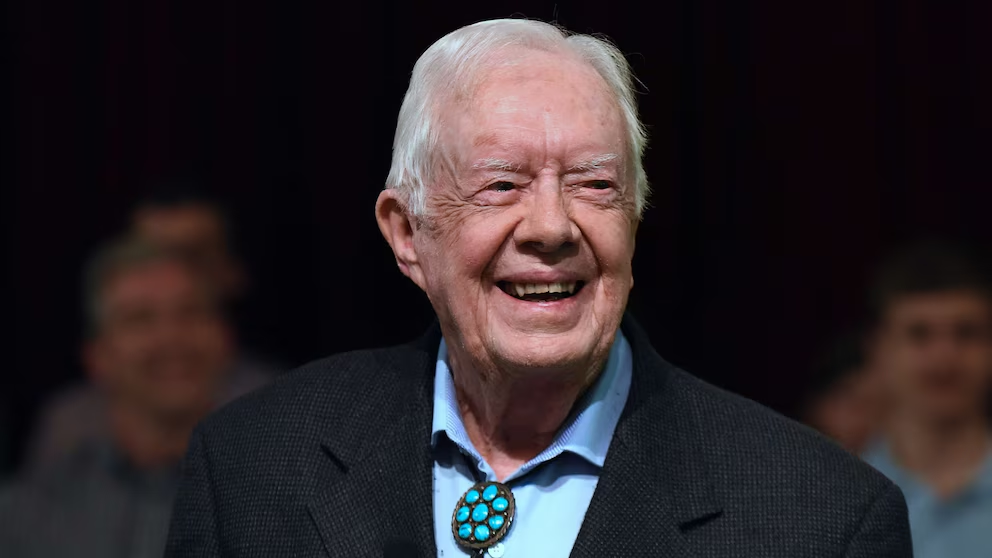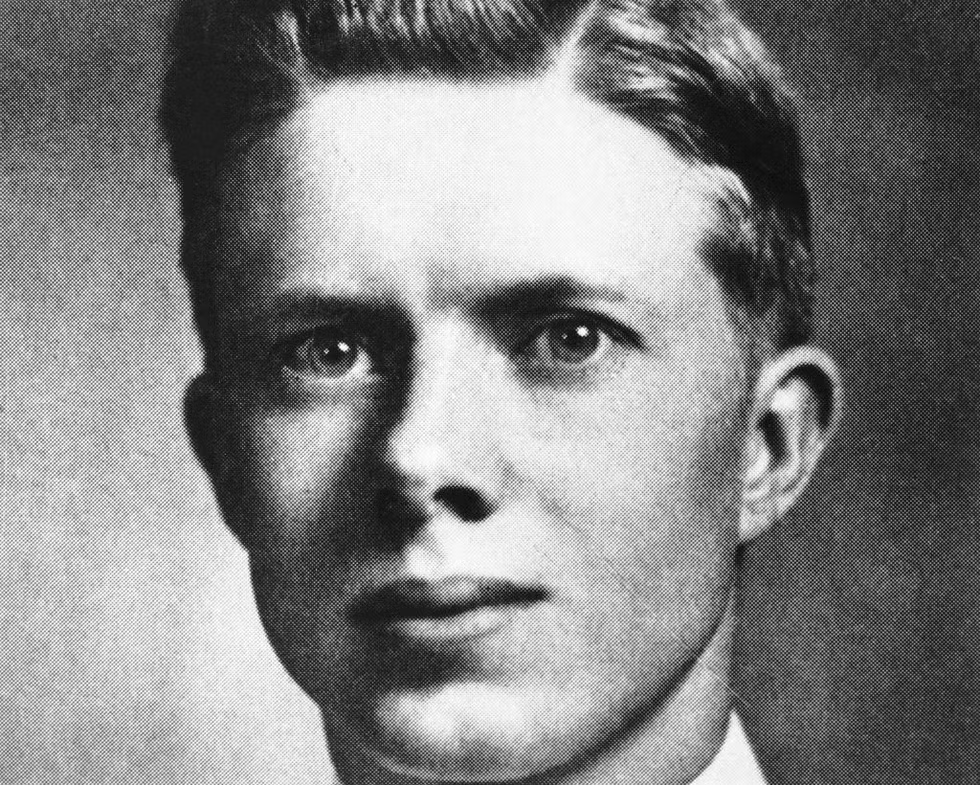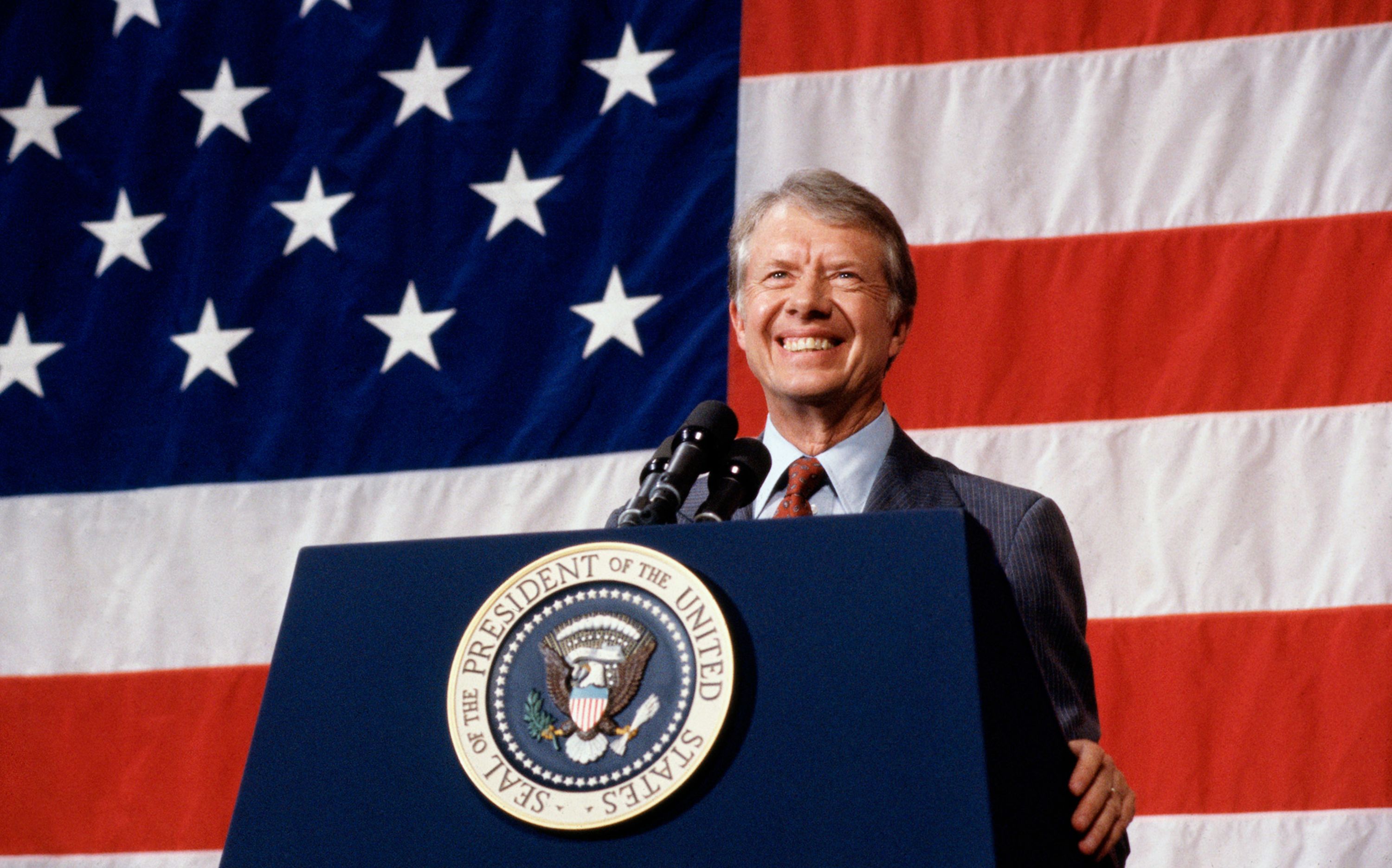

The Life and Legacy of the 39th U.S. President

Ahmed | 09/01/2025
James Earl Carter Jr., famously known as Jimmy Carter, was the 39th President of the United States from 1977 to 1981. The man of exceptional character and endurance is remembered not only for his political career but also for his humanitarian work and commitment to peace globally. In this article, we explore every detail of Jimmy Carter's life—from his humble beginnings to his legacy that continues to live on.
Jimmy Carter was born on October 1, 1924, in the small town of Plains, Georgia. He is the only president born in a hospital. This life started with all trappings of modernity but was profoundly tied to the old rural world. His father, James Earl Carter Sr., a very successful businessman and farmer, instilled in him the value of hard work. His mother, Lillian Gordy Carter, was a registered nurse who transmitted to him an instinct for service.
Coming of age in the Jim Crow South, Carter grew up under bright racial injustice. These experiences shaped his moral vision as well as political orientation in unique ways. He attended public schools in Plains. Very quickly he revealed aptitudes both for scholastics and for school office.

In 1941, he joined Georgia Southwestern College but then transferred to the Georgia Institute of Technology. He graduated from the United States Naval Academy in Annapolis, Maryland, in 1946 with a Bachelor of Science degree. He married his childhood sweetheart, Rosalynn Smith, two years after graduating.
He began his political career in the 1960s. In 1962, he won a seat in the Georgia State Senate that he served for two terms. Education, healthcare, and civil rights were priorities for him, making him different from his peers of the South who generally opposed racial integration.
In 1970, Carter was elected Governor of Georgia on a platform of racial equality and governmental reform. He served as governor, implementing policies to improve education, streamline the state bureaucracy, and promote environmental conservation.
Jimmy Carter announced his presidential candidacy in 1974 and portrayed himself as an outsider to Washington. When the nation was being rocked by a crisis of confidence in government together with the Watergate scandal, he resonated very well with voters based on his honesty and integrity.

Running on an open, human rights, and reform-economy platform, Carter won the Democratic nomination and defeated incumbent President Gerald Ford in the 1976 election. He thus represented change, a need for change in addition to moral leadership rediscovered in America.
Carter's presidency recorded many successes as well as major challenges. The most important achievements he met include:
He moved human rights to the front of U.S. foreign policy. He spoke out against oppression, and he seemed to be doing his best to bolster democracy and social justice from around the world.
One of the most notable legacies of Carter is his involvement in the Camp David Accords, the peace treaty that was negotiated between Egypt and Israel in 1978. This historic move made him famous worldwide, and as a result, many people referred to Carter as the peacemaker.
He emphasized energy conservation and alternative renewable sources. He created the Department of Energy and implemented measures to reduce dependency on imported oil.
Carter was a committed environmentalist. He expanded national parks, developed controls on pollution, and encouraged clean energy substitutes.
Many challenges faced the Carter administration. Some of them are as follows:
The economy was suffering from high inflation, unemployment, and an energy crisis, which led to a loss of public confidence in his government.
The 444-day standoff following the seizure of the U.S. embassy in Tehran became a defining moment of Carter's presidency, for which he came under heavy fire for his management of foreign policy.
These crises contributed to his defeat in the 1980 election to Ronald Reagan.
Even though Carter only served for one term as president, his post-presidency career has been extraordinary. He founded the Carter Center in 1982. This is an organization dedicated to advancing human rights, promoting democracy, and combating diseases worldwide.
Carter’s humanitarian efforts have earned him numerous accolades, including the Nobel Peace Prize in 2002. He remains a symbol of moral leadership and selfless service.
Jimmy Carter and Rosalynn have four children: Jack, James III, Donnel, and Amy. Millions inspired the couple's long enduring partnership and service to the public.
Today, Carter is the longest-living president of the United States, thanks to his vitality and strength. The legacy left behind as a champion of peace, human rights, and ethical leadership lives on as an influence in generations to come.
Jimmy Carter's life is a story of incredible transition from a small-town farmer to a global humanitarian icon. Although his presidency had many challenges, his post-presidency contributions have made him one of the most respected and admired figures in modern history. His dedication to service, unwavering principles, and vision for a better world make him a true statesman and a role model for all.